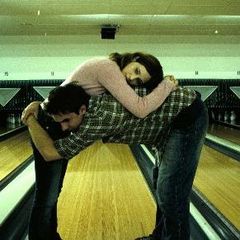
I was quick to jump on the bandwagon of director Jason Reitman's last outing, Juno, after seeing it two years ago. I loved it. After reading the script, I loved it less. Reitman and his cast gave these quirked out suburbanites' quotable dialogue nuance that was present on screen and glaringly missing on the page. Simply put, you had to see it to believe it.
Working from his own adaptation of Walter Kirn's Novel of the same name, Reitman's Up in the Air succeeds where Juno lost its footing. Its script is amazing. Its cast is impeccable. And this time, Reitman has raised his own game visually.
George Clooney stars as Ryan Bingham, a "termination facilitor". It means people hire him to fire their employees. He fancies himself a professional. It's clear in early scenes that he excels at his job as much as one could hope to. He's quick on his feet and focused. What I misjudged first as callousness reveals itself later as resignation to the inherent difficulties of his job.
His character has also resigned to the idea that he's better off moving about free of emotional and relational tethers. He's a man without a home by choice.
It's when he's faced with the prospect of staying foot that Bingham starts drowning. His final trip to train an overeager corporate upstart (played beautifully by Anna Kendrick) lays it out for us. Faced with staying put and digging in at his supposed home of Omaha takes a backseat to one last venture out in his beloved airplanes to stay in hotels, eat lounge dinners, and swap drinks and spit with a bewitching fellow traveller (played with deceptive layers by the excellent Vera Farmiga).
It's not terribly surprising that along the way he comes to question his choices, his relationships and lack thereof. What is surprising is how natural Reitman and Clooney make it appear. Even when the answers seem easy, they're not. Even when the glass is half-empty, it remains half-full and vice versa. It's this balance of sweetness, humor, and grim reality that mix to create a film for now. It's been called "The Film of this moment" too often to actually fit the bill. With that in mind, it comes damn close. There isn't a false note to be found in the movie. The emotionally heavy-lifting isn't there. But the movie is more than skin deep, too. It's just right like Baby Bear's porridge. Clooney, Farmiga, Kendrick, and Reitman know well enough that drama comes both from action and reaction. So rather than calling it the movie of this moment in time, let's call it "a reaction to this moment" and soak it in for it what is: one of the best films of the year.
Also, somebody tell Reitman that his half-empty/half-full ending is just what Up in the Air needed.
****










